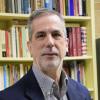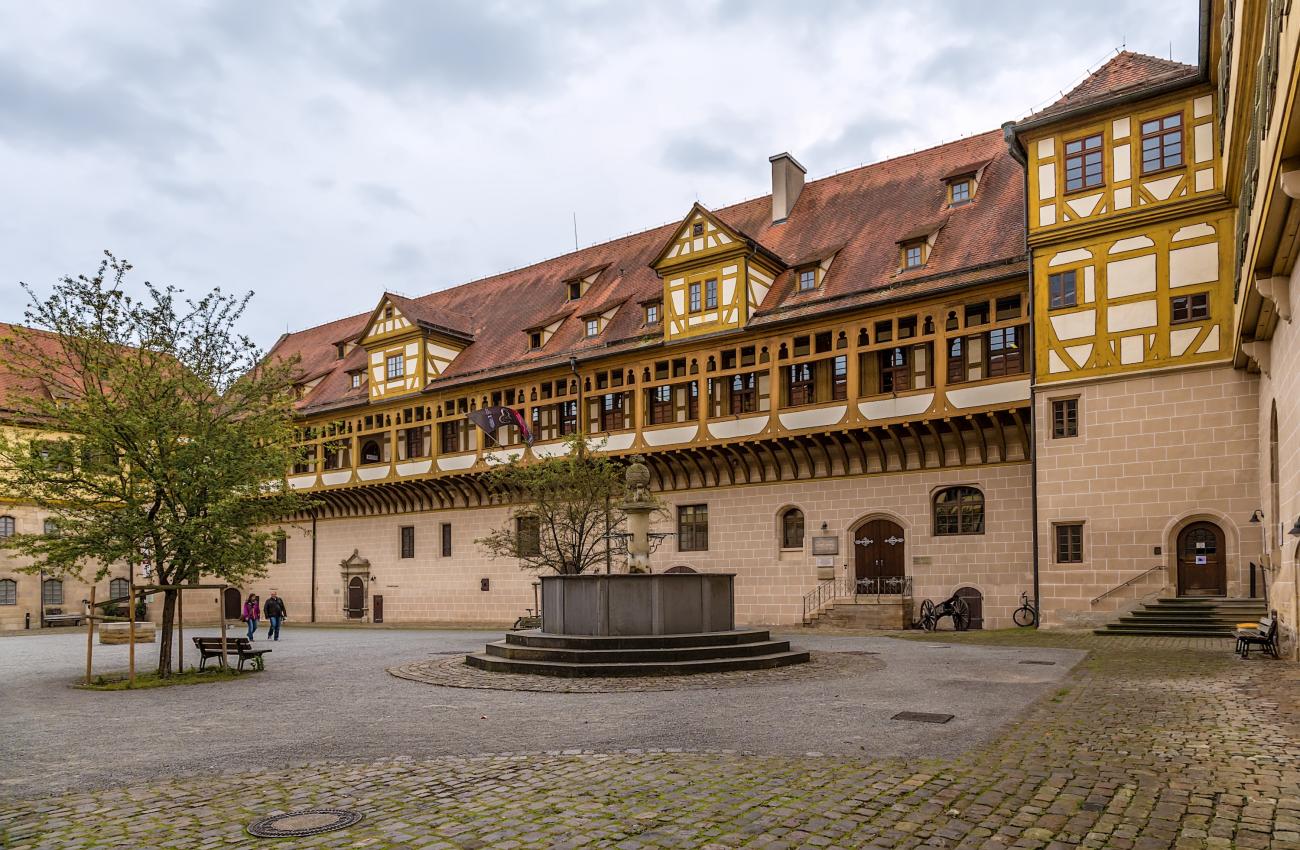A Season of Scholarship in Germany
Michael Raposa hails Spring 2025 as his most productive period in more than four decades of academic work.
Michael Raposa, professor of religion, culture and society, recently returned from an intensive sabbatical in Germany, where he was invited to participate as a New Horizons Visiting Fellow at the University of Tübingen’s College of Fellows. From January through June 2025, Raposa was one of just two visiting senior fellows, immersing himself in research, international collaboration and sustained scholarly exchange centered on his investigations into American philosophical pragmatism and religious thought.
Founded in 2022 and modeled on Princeton University’s Institute for Advanced Study, the College of Fellows brings together leading scholars across disciplines. Its New Horizons program invites senior scholars for residencies. There are additional programs at the College for early career scholars and post-docs.
New Horizons Fellows collaborate with researchers based at the University of Tübingen and other international guest researchers in thematic Focus Groups at the College of Fellows (regular meetings, workshops, etc.). The topics of the Focus Groups are aligned with the New Horizons Fellows’ research perspectives. Fellows are invited to the College on the joint proposal of at least five academics from the University of Tübingen. Other visiting scholars and young researchers may be invited to participate in Focus Groups. Alternatively, fellows may join existing Focus Groups. The nominating researchers commit themselves to participate in the focus group for the duration of the fellowship. During his residency, Raposa worked with a focus group of 12 Tübingen faculty members and graduate students. He delivered five presentations, each preceded by a reading group that allowed participants to engage with primary source materials in advance. Discussions were anchored in the writings of Charles S. Peirce and other figures in the American pragmatist tradition.
These disciplines are very important and prestigious at Tübingen, where the ghosts of Schelling and Hegel lurk everywhere. I especially enjoyed meeting young philosophers and theologians who would invite me to meet for coffee and conversation. Those conversations were like precious jewels. It was like being in graduate school again.

“It was an amazing experience, exhausting but wonderful. I was able to read, write and talk about theology and philosophy for 10 hours a day,” Raposa said. “These disciplines are very important and prestigious at Tübingen, where the ghosts of Schelling and Hegel lurk everywhere. I especially enjoyed meeting young philosophers and theologians who would invite me to meet for coffee and conversation. Those conversations were like precious jewels. It was like being in graduate school again.”
Raposa’s scholarship focuses on modern Western religious thought and the philosophy of religion. His first book, published in 1989, examined the religious dimension of Peirce’s philosophy. Peirce, a 19th-century American scientist, mathematician, logician and philosopher, is often called the father of pragmatism. In 1999, Raposa explored the religious significance of boredom, considering it both a threat and a catalyst to spiritual life. His 2003 book investigated the meditative qualities of martial arts and the martial dimensions of classical spirituality. Most recently, in 2020, he published Theosemiotic: Religion, Reading, and the Gift of Meaning, which applies Peirce’s semiotic theory to key questions in philosophical theology.
One highlight of Raposa’s sabbatical was a small international conference on “Charles Peirce’s Neglected Argument,” which he co-hosted with Professor Gesche Linde of the Protestant theology faculty at Tübingen. The June event marked the culmination of his focus group work. Raposa delivered the final presentation, and the proceedings are slated to be published by De Gruyter Brill publishing. In February, he presented a public lecture at the College of Fellows, “Philosophical Pragmatism and the Ethics of Attention.” In March, he presented “On the Religious Significance of Boredom” at a conference hosted by another visiting fellow.
His scholarship also reached beyond Tübingen. In April, Raposa traveled to Berlin for a two-day workshop at the Catholic Academy, where German scholars engaged with his 2020 book on theosemiotic. Each chapter was analyzed by a different interlocutor, prompting dialogue that culminated in a public lecture.
Even as his sabbatical ended, Raposa stayed active. Just days after returning to the United States in June, he delivered a new paper, “The Love That Remains: Religious Naturalism as a Manifestation of Saudade,” at the annual meeting of the Institute for American Philosophical and Religious Thought in Virginia.
He also submitted an article to the German Pragmatism Network Newsletter and accepted invitations to contribute chapters to two edited volumes—one from Fordham University Press on Catholicism and social justice, and another on applications of Peirce’s philosophy.
Alongside his fellowship activities, Raposa made significant progress on two book manuscripts: Saudade: Philosophical Meditations on Time, Loss, and Love, expected to be finished by year’s end, and Studies in Scotism, which he plans to complete in the next few years.
His Spring 2025 sabbatical, marked by rigorous intellectual exchange, new collaborations and a wave of publications, underscores Raposa’s enduring contributions to philosophy, theology and semiotics.

